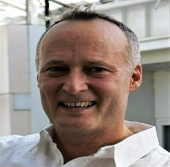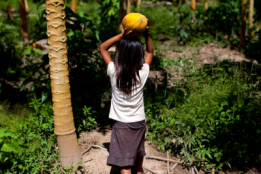Agenda
2. Are there specific areas or aspects of the guidelines you find clearer and more helpful, and why?
3. Are there specific areas or aspects of the guideline you find ambiguous or difficult to understand? If so, where and how could these be addressed?
4. Are there specific areas or aspects of the guideline that you find less useful and recommend it be omitted, and if so why?
5. Are there any topics, best practices, or considerations that you feel are missing and should be added, and if so why?
Speaker

International Evaluation Academy (IEAc)
Scott G. Chaplowe is a committed professional with over 25 years’ experience working with civic, public, and private organizations seeking sustainable solutions for social and environmental challenges. Trained as a geographer, his work stresses complex systems analysis to drive evaluation, strategy development, and organizational capacity assessment and development. Notable jobs include the Director of Evidence, Measurement and Evaluation for climate change at the Children’s Investment Fund Foundation (CIFF) and Senior M&E Advisor with the International Federation of Red Cross and Red Crescent Societies (IFRC). Scott has consulted with a variety of clients, including Climate Investment Funds, the Adaptation Fund, and the Adrienne Arsht-Rockefeller Foundation Resilience Center. He has authored numerous publications, delivered professional development training, and actively contributes to forums at the crossroads of evaluation, sustainable development, and transformational change. Currently he serves on the Board of Trustees for the International Evaluation Academy, the American Evaluation Association's International Working Group, and EvalSDGs. See www.ScottChaplowe.com




